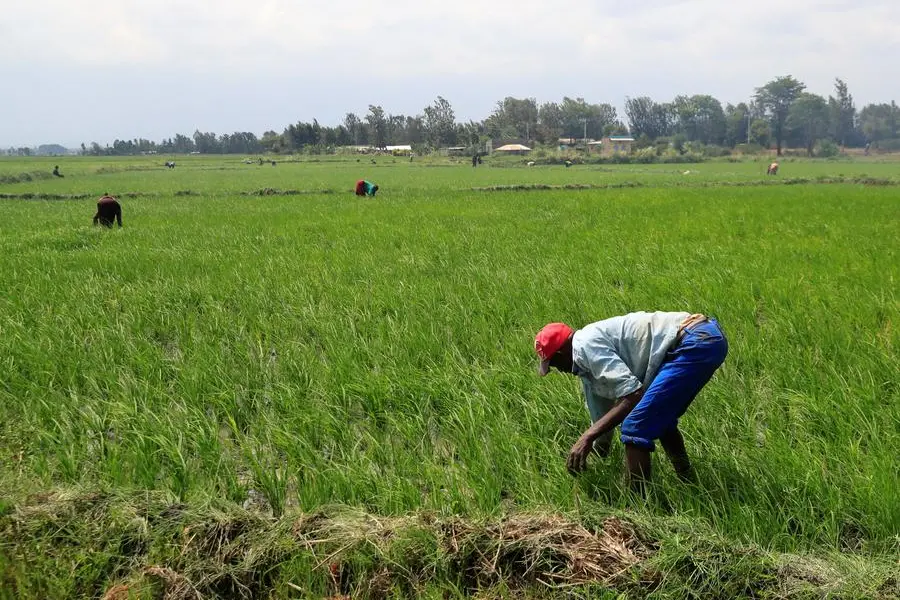PHOTO
This week, a food market report showed that a combination of factors – including erratic food supply in the region, high prices due to shortfalls, high demand in importing countries and poor policies – have made the region food insecure.
The East African Cross-Border Trade Bulletin July 2023, released by The Market Analysis Sub-group of the Food Security and Nutrition Working Group, says the 2022 drought raised prices of grains as demand reduced supply.
The Food Security and Nutrition Working Group monitors informal cross-border trade of 88 food commodities and livestock in Eastern Africa to quantify the impact on regional food security.
Read: Base technology for Africa on the best science“In the first quarter of 2023, when it became known that Kenya could not acquire enough supplies from overseas due to higher prices and currency depreciation, cross-border trade was exceptionally high,” says the report.“The significance of the supply interchange between Uganda and Tanzania depends on the production and, in addition, the export policy of Tanzania, whereby, when domestic prices rise due to high domestic and regional demand, Tanzania reduces exports through various tools.”The region could have as much as 240,000 metric tonnes of maize on the market in the second half of the year.
But that may not be enough because of the significantly higher than the average prices of staples that followed seasonal patterns across key reference markets in the region, primarily influenced by high production and transport costs. Prices are expected to remain above average through June 2024.“In East Africa, maize prices have risen since mid-2021, driven first by high demand as Covid-19 control measures were waived. Demand rose with improving economic activities and was later supported by high costs of inputs and fuel as supply could not keep pace with demand,” says the report.
President William Ruto announced Kenya is on course to meet national demand for maize, and could even have a surplus, but farmers are cautious about the promise.
Read: Kenya’s maize imports raise EAC grain tradePresident Ruto said the country is expected to harvest 44 million bags, compared to last year’s 32 million bags.
But Kipkorir arap Menjo, a director at the Kenya Farmers Association, said the country remains food insecure because the government failed to set aside funds budget to cater for grain reserves.“The trouble is that we have post-harvest and market challenges,” said Menjo, who is based in the North Rift, Kenya’s food basket.“By October we are likely to get maize from across the borders. Imported maize from Uganda, Ethiopia and Tanzania is likely to result in a maize glut that would see low maize prices for our farmers,” he explained. “But as it is, there are no strategic reserves and no funds allocated to it, so farmers will be at the mercy of cartels.”According to the bulletin, the share of maize in East Africa’s cross-border trade declined from 48 percent to 31 percent between the first and second quarters of 2023 as supplies tightened amid below-average production.
Tanzania is expected to remain the primary source of rice to Kenya, Rwanda, Burundi and Uganda.“The deficit-producing countries of Kenya, South Sudan, Somalia, Rwanda and Burundi are expected to import more maize from Uganda, Tanzania and Ethiopia, to meet their deficit,” says the report. “Competition for the tradable surplus within the region will likely direct more flows to Kenya and the eastern Democratic Republic of Congo, where the purchasing power and prices are relatively higher.”However, wars and violence in Sudan, South Sudan, Ethiopia and Somalia have added to the hunger problem, according to an analysis by the UN Office for the Coordination of Humanitarian Agencies (Unocha), as the affected cannot be reached.
Mahboub Maalim, special adviser on the hunger crisis at the International Federation of the Red Cross and Red Crescent told The EastAfrican this week that the problem for the region is a combination of local and external forces, making it complex.“This is unprecedented. It has never been recorded that so many countries in Africa are experiencing hunger,” he said in an interview on the sidelines of a media café in Nairobi hosted by the IFRC on food security. © Copyright 2022 Nation Media Group. All Rights Reserved. Provided by SyndiGate Media Inc. (Syndigate.info).





















